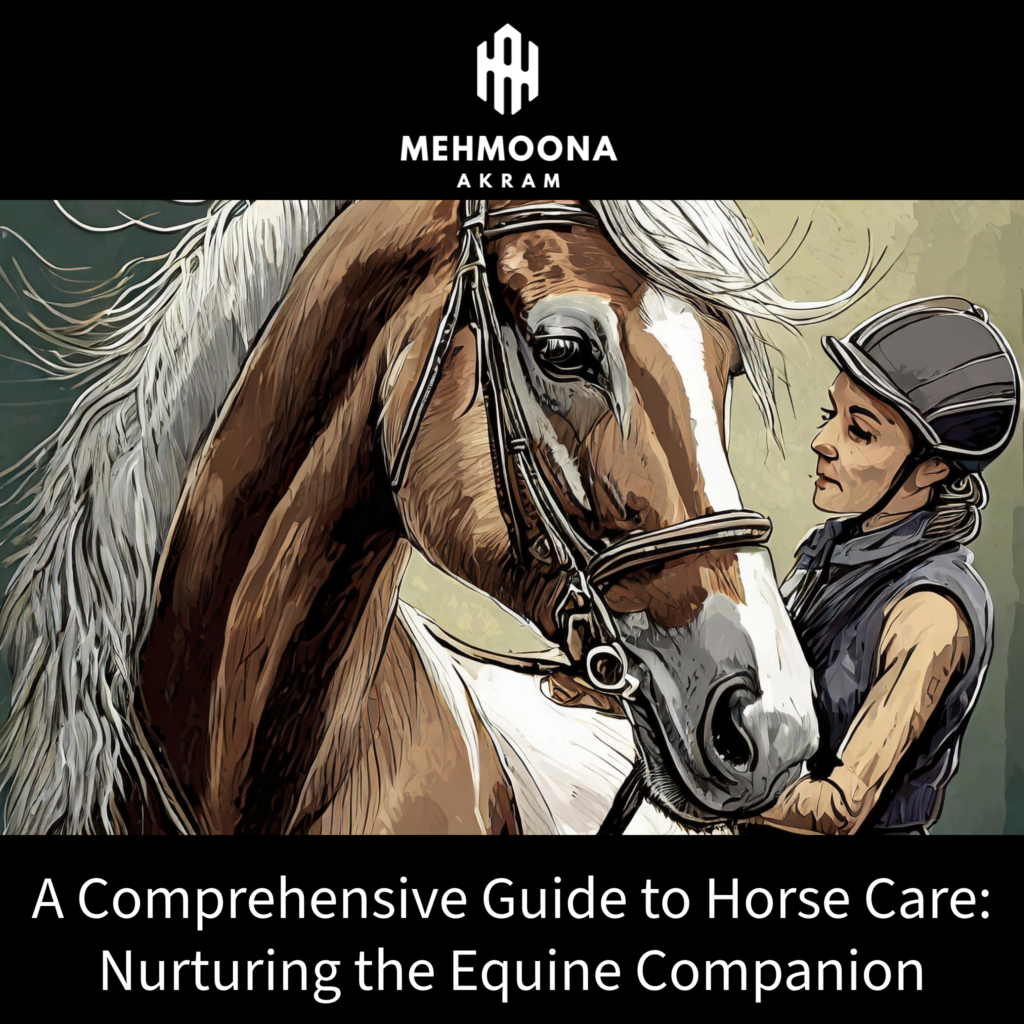
Introduction:
Owning a horse is a rewarding and fulfilling experience, but it comes with a significant responsibility. Proper horse care is crucial to ensure the well-being and longevity of these majestic creatures. From nutrition to grooming, exercise, and healthcare, this comprehensive guide will cover essential aspects of horse care to help you become a responsible and knowledgeable horse owner.
Shelter and Environment:
- Stable or Shelter: Provide a well-ventilated stable or shelter where your horse can seek refuge from extreme weather conditions, such as rain, snow, or intense heat.
- Pasture Access: Allow your horse access to a spacious and safe pasture where it can graze and exercise naturally.
- Nutrition:
- Balanced Diet: Ensure your horse receives a well-balanced diet consisting of quality hay, grains, and supplements. Consult with a veterinarian or equine nutritionist to tailor the diet to your horse’s specific needs.
- Fresh Water: Provide clean and fresh water at all times to prevent dehydration and maintain overall health.
- Grooming:
- Regular Brushing: Brush your horse regularly to remove dirt, loose hair, and to stimulate blood circulation. This helps maintain a healthy coat and reduces the risk of skin issues.
- Hoof Care: Schedule regular hoof trims with a qualified farrier to prevent issues like overgrowth, cracks, or infections.
- Bathing: Bathe your horse as needed, using horse-friendly shampoos and conditioners. Be mindful of temperature and weather conditions to avoid chilling the horse.
- Exercise and Mental Stimulation:
- Turnout Time: Allow your horse plenty of turnout time in a pasture for natural movement and social interaction.
- Regular Riding or Groundwork: Engage in regular riding sessions or groundwork exercises to keep your horse physically and mentally stimulated.
- Healthcare:
- Vaccinations: Stay up-to-date with vaccinations to protect your horse from common diseases. Consult with your veterinarian to establish a vaccination schedule.
- Dental Care: Schedule routine dental check-ups to address any dental issues and maintain proper chewing function.
- Parasite Control: Implement a strategic deworming program to control internal parasites and maintain your horse’s health.
- Emergency Preparedness: Have a well-equipped first aid kit on hand and know the basics of equine first aid. Establish a relationship with a reliable veterinarian for emergencies.
- Social Interaction:
- Companionship: Horses are social animals, and they thrive on companionship. If possible, keep horses in pairs or groups to prevent loneliness and reduce stress.
- Monitoring Behavior:
- Observation: Pay attention to your horse’s behavior, eating habits, and overall demeanor. Early detection of changes can help address potential health issues promptly.
Conclusion:
Taking care of a horse requires dedication, knowledge, and a genuine love for these magnificent animals. By providing proper shelter, nutrition, grooming, exercise, healthcare, and social interaction, you can ensure a happy and healthy life for your equine companion. Regular veterinary check-ups and ongoing education will contribute to your ability to be a responsible and compassionate horse owner.



